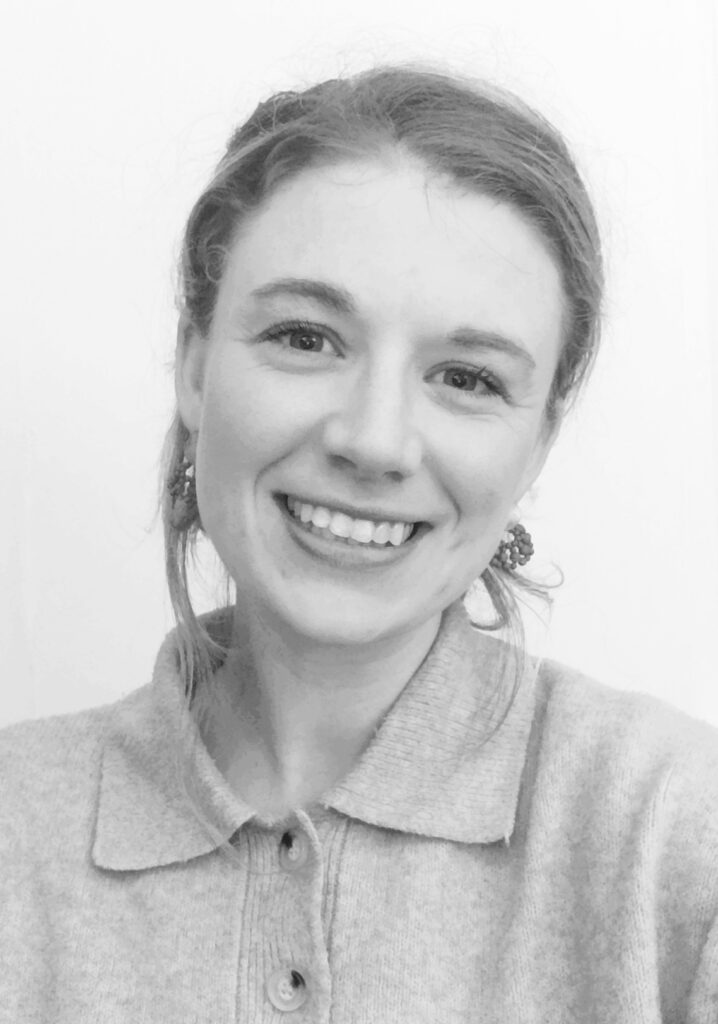
Journeys
Summer is winding to a close, and it has been three weeks since Eleni returned from the city hospital. She contacted them yesterday, postponing going back for her next placement. A polite, rational email which did not match how she felt.
Her mother has sold the small patch of farmland – no sons, only Eleni, with her deft mind full of medicine and her hands and hair scented by antiseptic – and the hilled, undulating land belongs to another farmer now. It is impossible for her to think that she will never again see her father – his thick back, sturdy arms – bending over the rolled nets of caught olives.
Eleni is managing her aunt’s shop while she is away. Isidora had looked at her niece, returned from the thrum of A&E rooms, still young, still a student, and sensing her thorned anger and her loss, had led her to her workshop. In the cool space of the pottery room, protected from the sun by thick, white walls, she sat Eleni by her pottery wheel, lifted her hands and taught her to mould and bend the clay to her will. Easy shapes, at first: a plate, a bowl. Soon, a vase, to be baked and painted in light shades. Later, it will be sitting on the bookshelf of her student flat in Thessaloniki when an email arrives, a panicked mother: Have you heard from my son?, and Eleni will glance at the vase and think detachedly of its pleasing symmetry. Isidora taught her with unusual patience, lent her old, clay-covered dresses, lifted her hair high on her head and tied it tight.
The shop is often quiet, though popular with tourists who stop in after the beach on the way to their evening meal in the tavernas. Today, when the sun is still high in the sky and Eleni is sorting through orders, Hassan is making his way into town to buy a SIM card and phone. His are logged with water and now unusable. He has not spoken to his mother for days and the rounded shapes of Isidora’s vases stop him. The door is ajar to let a breeze in, and he hovers by it before entering. Eleni is standing on a stool, shifting the order of the turquoise cups. The shop is lined with clean white shelves on which fragile vases and delicate things are poised for sale. He thinks of the steadiness of the hands – how untrembling they must have been – which have painted the pottery with vines and history and mythic power. His is a world in which stability no longer exists: where inflatable boats can be tossed on matte black surfaces and nearly subsumed, and where the sea churns until slippery hands grip onto whatever is graspable.
Can I help you? She lifts her long skirt to climb down from the stool, trying not to stumble. He notices her long, bare feet and she notices how he is young, like her; his features even and strong, but his eyes are lined and the skin under them pouched. When there is no light of understanding, she shapes her words into English. Is there one that you would like to see?
His grasp of English is solid. He was on track to become an engineer; all laid out before him, a trusted path. Still, it takes him a moment for the words to settle and shape into sense. He had walked the three lonely miles from camp into town along a dusty track. The nets had startled him. The cut of them – with their rolled shape and secretive innards – winded him, as though his stomach had been slapped by a wave. He crept up a hill and twitched the netted side. Gave a sigh of relief and slackened his shoulders.
No, he says. But my mother would like these.
She tilts her head, catching his accent. A photo, maybe? Mothers like photos.
Yes. He gives a hollow laugh, and holds his hands up ruefully. But I don’t have a phone now.
And so it begins. English is a help, a compromise. She offers to take photos for him and email them to his mother, then remembers an old phone, hidden in one of Isidora’s many cupboards, where all is precariously balanced. There is a charger, somewhere, she thinks out loud, and begins to hunt for it.
Call her, she says. She will be worried. When he does so, in the back room, she does not understand the words, but she understands his thickened voice and turns away, busying herself.
When he emerges, his face is drawn. More news of fear at home. She offers him her seat and brings a tall glass of water. He stays and they speak until the light changes, becoming softer. Tourists come with spades and windbreakers and noisy enquiries, and then he says that he has to go, that there is another family who has offered to cook for him, because he is alone. They have been promised stoves, any day they say, but for now people cook on open fires, gathering wood from low-lying trees. Sometimes, when it is wet, the wood will not light, so people have begun to hide it in sleeping bags and under tent surfaces. Sometimes, when it rains, they leave out saucepans, for the water is a limited supply, only three taps.
The next day when he comes – bringing with him peaches from a market stall, ones he had deliberated over – she is crouched behind the desk in search of a lost receipt.
I wanted to thank you, he says, and his hands are shy as he passes her the paper bag of them.
They sit out the front on a bench, their backs warmed by the glass of the shop window. The peaches are hard to eat delicately; juice bursts from their hands and stickies them. She introduces him to spanakopita, bought from a neighbouring bakery for her lunch, the following afternoon. Some days later, he tells her again of the fires and the saucepans and she says, Come to me. My aunt is away. I’ll cook for you.
She dusts sardines in salt and flour and lemon; fries them lightly. Feta is baked and drizzled with honey, and tomatoes and capers are mixed with oil. There is thick, fresh bread in a knotted bag which she gives him to slice. He eats hungrily in the slanted light. For the first time since her mother rang sobbing, her syllables indecipherable, the nail of grief screwed tight within her begins to loosen.
Let me do the same for you, he says. Parakalo; trying the word on his tongue.
On a Thursday afternoon when the shop is closed, they go to the market together. He buys yoghurt and makes labneh, cooks broken vermicelli in bubbling oil and then cooks a rice dish which crunches between their teeth, which she can’t get enough of. She eats more and more and this delights him. Together, they slice tomatoes and cucumber finely, add salt and parsley, grate lemon and coat with oil. Their conversation fills the room, and he laughs often. It is so good to laugh again – the sound of a past life! They move carefully around each other in the kitchen, barely touching.
Eleni goes to Isadora’s shop for a few hours each day. They spend the evenings on the balcony of the flat, surveying the roofs ahead and the unwavering line of the ocean. Despite the sun, the land is a rich green, wetted each morning by a thin mist of water. From here, it is idyllic and the ocean is held at bay. Pain seems impossible. Each summer, tourists from neighbouring countries come to the island, escaping the sun-beaten sidewalks. It is beginning to change, as more people with parched mouths and aching bodies, their belongings slipped to the ocean’s greedy floor, make their way into the town, asking for food, for water, for shelter.
Each afternoon, while she secretes herself in Isadora’s workshop or serves customers – tourists, always tourists – he returns to the camp. He drinks dark coffee, thick and grained as sand at the bottom of the mismatching mugs and glasses, and talks with those who neighbour his tent. Mahmoud hunches by the fire, trying to bring it to life, and speaks in low tones. Germany, he says, or Sweden. They say life is good there. They say I can work. He looks at his children, running and squealing between the patchwork of tents. Before Winter, he says. He tugs a hood over his head. Before the water is too cold.
Eleni is washing the clay from her hands when he comes back and must open the door to the flat with her elbow and forearm. She smiles. Can you give me a towel, she says, indicating below the sink with her foot. She holds up her hands, showing him how clay has laced itself into the crevices of her skin.
Your aunt, he says, as he hands her the towel, Isidora? When will she come back?
A week, or two. It depends, Eleni says. She goes to Thessaloniki to meet with shop-owners two times a year on the ferry. She takes examples of her work. Eleni meets his eyes as she dries her hands. If she sells many things, sometimes she returns faster. The ferry goes every day at this time of year.
Hassan doesn’t respond, thinking of this crossing. Images billow of a sea-tossed dinghy, of bright inflatable jackets, of the taste of salt. His eyes rove the room and she says with delicacy, She will let me know. But I think she wants to give me space.
He nods. His hair is growing longer and is no longer as closely cropped to his skull, and under his eyes the skin is less burdened by exhaustion. Now, he makes an effort to lift himself. I found this, he says. In English, I don’t know the word, and he produces parsley from the pocket of his thin jacket.
Ah, she says, maintanos!
He looks at her levelly. No, he says, I do not think so, and this makes her laugh.
Later, after they have mixed it with yoghurt and cucumber and grated in garlic, then eaten the dip with leftover lamb and orzo, they sit on the balcony. She watches him gazing at the ocean, and then she pulls him to his feet, brushes her body against his, tugs him inside. Thin, bare shoulders, strong legs, hair clotted with clay. They lie in the tiled space of her aunt’s bedroom afterwards, and then turn and face each other, nearly shy.
In the morning, he makes them coffee and watches the milk swirl through it before carrying it carefully down the stairs and across the courtyard to where she works. He doesn’t speak. Instead, he stands at the brink of the workshop and watches the lines of her arms dapple and flex as she moulds shapes into life. The desire to rest in this moment is a keen one.
She is engrossed and doesn’t notice him – not yet – because before her, the clay is warping. She can feel her upper body strengthening from the repetition of this movement over the last weeks and is beginning to understand why Isidora led her here and lifted her hands. It is a means of expending the anger coiled within her. The irony of it has struck her many times – if there had been a doctor there, if her father had been seen quicker – all would be different. Perhaps.
Eleni has to return to her studies soon – the semester will begin. The knowledge of this is like a shadow gaining length. She is thinking of this when Hassan brings her coffee and they sit quietly in the shade, before she begins to tell him a story from her childhood, laughing and lightening as she does so.
That night, when he awakens in a blue-black light, her face is silvered next to him. Trails running down the planes of her cheeks, her lashes wet and gummed together. She breathes deep, effortful breaths: the wound of still surprising grief. Eleni has spoken of her father before, though she moved the conversation on and asked him about the situation in the camp, not yet able to steady her voice and bring him back into being through her words. For Hassan, too, there is much that is unsaid.
He strokes her hair softly with his free hand. Tell me, he says, tentatively. What was he like?
She closes her eyes again: summons him in the cavern of her mind. How to summarise a person? She begins to speak. He was tall and heavy, eyebrows like caterpillars. Hassan raises his own eyebrows, confused, and she laughs. She has to wriggle her fingers to explain. He was often quiet. But he liked British music, older things. Stone Roses, Van Morrison. And there were two dishes he cooked, really well. He was insistent on homework, a secret smoker. I caught him, by the olive groves – his face!
There is silence after, only the sound of their breathing, the tick of Isidora’s bedside clock.
She asks him, What was it like? Your city? Before? She can only conjure images of spiteful letters in foreign shapes, once thought beautiful in their tendrils, sprayed onto diminished buildings. She thinks of the newspaper photos of tanks in emptied streets and gun-toting men; a darkly dressed woman on a building top, pegging laundry in quick, furtive movements, the rooms below her turned to empty shells.
He turns towards her slightly, shifting his arms. It is easier in the dark. He clears his throat, and then he says: It’s the evenings I think about. Our home had a balcony, and in the middle of all the balconies was a garden. In the evening, everyone came to the balconies, to smoke and talk. And there was singing, and chai. Flowers everywhere. Talking, always talking.
He thinks of the citrine light and the skyline, broken by birds migrating and the rise of the buildings. She listens, trying not to move.
I have to go. Soon, he says. His voice is heavy.
Yes, she says. I know. I wish I could help you more. She tightens herself next to him, shivers.
In the days to come, she gives him the numbers of friends in any cities she knows. Soon, she will fold money into the pocket of his coat, secreting it away while he showers. One night in the months to come, she will be on the wards, hair tightly coiled atop her head, throbbing with tiredness, and he will ring. Eleni, he will say, sobbing. El, El, it was so close. I am frightened.
He will be cold and alone and she will stop mid-stride, electrified by the bare panic in his voice. Wait, she’ll say. Wait, Hassa, I can find someone where you are. Someone who can help. Eleni will ask her colleagues, even the consultant, and someone will have a name. Milica. Someone with food, medicine, shelter.
That night, Eleni will fall asleep after a fourteen hour shift, and she will dream that they meet, months later, in a rain-slick city where winter has fallen. It will be vivid enough to surprise her. She will nearly be able to taste the peaches.

Jill Craig
Jill Craig grew up in Northern Ireland, studied in Glasgow, and lived in France and Greece before moving to teach in the North-West of England.
She is a current student of The Novel Studio and has previously had an article published in Freckle about the culture of food in a Greek refugee camp. Another story will shortly be published with Literally Stories.
More from this author:
Love this?
Subscribe to our monthly newsletter
- content updates, artworks, competition news (and frogs) - direct to your inbox
Read next:



